
COVER PHOTOGRAPH: Portrait of Eleanor Marx.
INSIDE FRONT PHOTOGRAPH: A stevedores float during the 1889 dock strike, part of a procession assembled in East India Dock Road, London.
INSIDE BACK ILLUSTRATION: The International platform at the 1891 May Day rally in Hyde Park, published in the Illustrated London News.
Eleanor Marx stands in the foreground; Edward Aveling is speaking.
Published by Bookmarks Publications 2015
ISBN print edition: 978-1-909026-77-3
ISBN Kindle: 978-1-909026-80-3
ISBN ePub: 978-1-909026-81-0
ISBN PDF: 978-1-909026-82-7
Series designed by Noel Douglas ()
Printed by Halstan Printing Group

ACKNOWLEDGEMENTS
Thank you to Sally Campbell for all her help and hard work and to Lina Nicolli, Peter Robinson and Mary Phillips for their work on the production. Thanks to Jim Fagan and Fran Manning for their helpful comments, and to the many others who contributed ideas and insights. Special thanks to Liam Brown, Ron Singer and Jan Blake for their encouragement, to Rhys Williams for his love and patience and to Andy Brown for all his support.
ABOUT THE AUTHOR
Siobhan Brown is a museum worker and activist from east London. She is on the editorial board of Socialist Review.

1: INTRODUCTION
E leanor Marx was an agitator, an organiser and a writer. She threw herself into struggles against imperialism, racism and sexism. She was surrounded her whole life by activists and became one of the greatest activists of her time. She was so much more than just the youngest daughter of the great revolutionary Karl Marx.
She was shaped, as we all are, by the times she lived and worked in. From the Paris Commune in 1871 to the fightback of British workers during the New Unionism movement of the 1880s, the victories and the defeats of the time were distilled in Eleanors political thought, action and commitment.
She was a lover of theatre and performance, undoubtedly helpful in speaking at hundreds of workers meetings. She was an avid reader and entertainer. She helped bring Ibsen and Flaubert to British audiences, as well as terror to the lives of ruthless bosses in Londons East End. She offered up opinions on everything from the American Civil War to Shakespeare.
Revolutionary socialism was always closest to her heart. Karl Marx famously said that while his elder daughter, Jenny, was like him, Tussy [Eleanors nickname] is me. Her familys, and in particular her fathers, commitment to socialism had a huge impact on her life and politics. She spent her teenage years at the congresses of the International Working Mens Association (IWMA), the first international workers organisation, and spent much of her adult life translating and organising the distribution of Karl Marxs work. But while she continued in his spirit, she also found her own.
At the core of Eleanor Marxs politics was internationalism. At the age of just 16 she looked to Paris and its Commune for what workers men and women could do. She committed herself to sharing its history and its lessons. From an early age she stood up for the most downtrodden in society. As a child, she identified with the struggles of Irish republicans, an understanding that would pay off later when it came to organising politicised Irish workers in east London.
She built early socialist organisation in Britain long before the advent of the Labour Party. She campaigned for free speech and the right of activists to organise on the streets.
She recognised the importance of building movements and taking socialist ideas to their centres. As she so brilliantly put it in a speech to the May Day demonstration in 1890: We must not be like some Christians who sin for six days and go to church on the seventh, but we must speak for the cause daily, and make the men, and especially the women that we meet, come into the ranks to help us (www.marxists.org/archive/eleanor-marx/works/mayday.htm).
She worked tirelessly to spread the struggles, strikes and lessons of New Unionism the organisation of the unorganisable to fight for an eight-hour day, better pay and improved conditions.
Much has been made in recent years about the changing nature of work and the implications of this for workers organisation. These are important debates touching on questions of whether certain groups of workers can organise or fight back.
In the 1880s the working lives of matchwomen, gas workers and dockers were every bit as precarious as todays fast food workers or call centre staff, if not more so. They had little or no history of organisation, were excluded from existing unions and were vilified and patronised in equal measure. But they fought and they won. Eleanor organised among these workers across the country and was one of the founders of the National Union of Gas Workers and General Labourers, now the GMB.
She wrote on the workers movement in Britain and the US and on the terrible working conditions and poverty that workers endured. She was a tribune of the oppressed, organising with and agitating among women and migrant workers in particular, from the women workers of Silvertown to the Jewish tailors of Stepney.
Eleanor wrote and spoke on the issue of womens liberation. During her lifetime the womens movement in Britain was largely dominated by middle class women and their interests. But Eleanor saw women as crucial to the success of the workers movement and to the emancipation of the working class as a whole, just as she saw the workers movement and its progress as key to the liberation of women. She didnt reject the gains being made in areas such as womens education, but she recognised early on that working women had more in common with working men than they did with the leaders of the womens rights movement. She argued that, while granting the vote to women was important, voting itself was not enough.
She recognised that women and men had to organise alongside one another. In 1892 she wrote, And now, what do we women have to do? One thing without any doubt. We will organise organise not as women but as proletarians; not as female rivals of our working men but as their comrades in struggle (www.marxists.org/archive/draper/1976/women/5-emarx.html).
She impressed with her verve and bravery. The gas workers called her Our Old Stoker. They and others were constantly impressed with both the delivery and strength of her arguments.
Yet so many accounts of Eleanors life focus on her troubled personal life and her suicide. There is so much more to her life and legacy than that. Eleanor Marx should be placed where she belongs at the centre of a powerful workers movement that changed the nature of British trade unionism and the position of the most exploited and oppressed in society.

2: THE EARLY YEARS
E leanor Marx was born in January 1855 in Dean Street in Soho, the heart of London and the centre of life for political migrs. During her early life the family was constantly under the pressure of poverty, with bailiffs regularly at their door.
Three years before Eleanors birth her family found they could not afford a coffin for their daughter Franziska without taking out a hefty loan. The pressures inevitably took their toll. In 1862 Karl Marx wrote, Every day my wife tells me she wishes she and the children were dead and buried. And really I cannot argue with her. For the humiliations, torments and terrors that have to be gone through in this situation are really indescribable (quoted in Alex Callinicos,
Next page
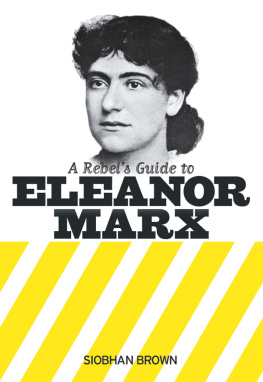
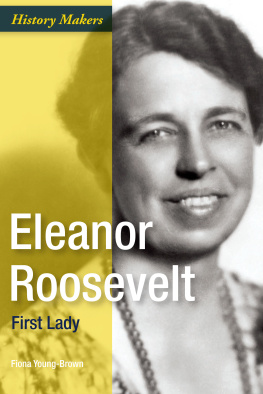






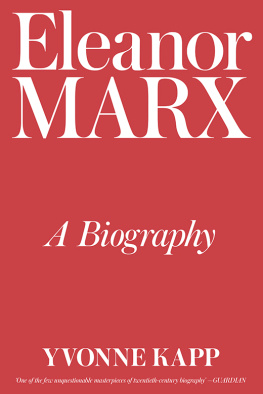
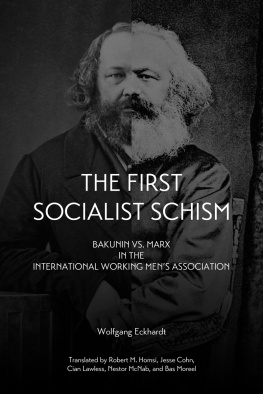
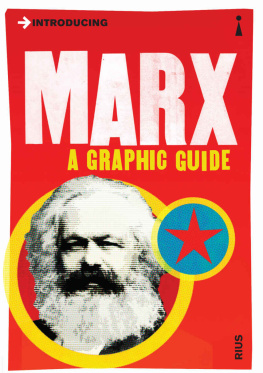
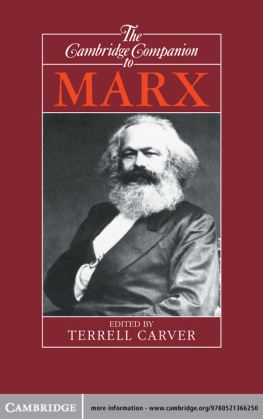
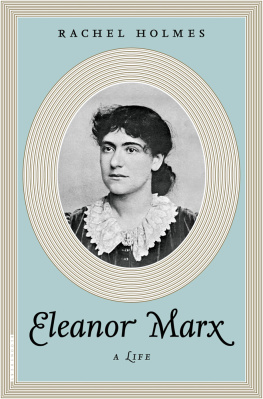


 1: INTRODUCTION
1: INTRODUCTION